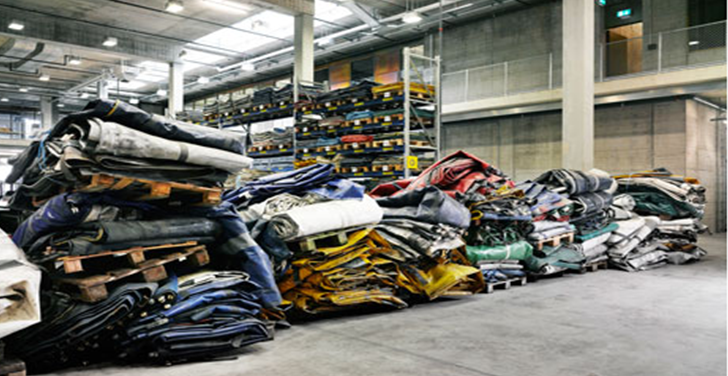Circular economy: The benefits of closing the PVC loop
For the industry at large, it implies a radical change in its modus operandi bringing about a continuous quest for improvements in the way its resources are obtained and transformed. Companies have to re-think and re-design their products to save on raw materials and energy consumption, extend their life-cycle, and re-use and recycle as much as possible. The PVC industry is no exception and programmes such as VinylPlus are perfectly aligned to the “more with less” school of thought.
The United Nations Environment Programme (UNEP) defines this new business model as “circular economy”; an economy which balances economic development with environmental and resources protection, with emphasis on the most efficient use and recycling of resources, and environmental protection. A Circular Economy features low consumption of energy, low emission of pollutants and high efficiency.
VinylPlus partner company Serge Ferrari is a good example; it has taken the circular economy concept to a whole new level by introducing circular cooperation, circular marketing and circular advocacy.
Serge Ferrari’s involvement in the Texyloop® is a cornerstone of its circular economy. This recycling project uses a specific reactor for polyester and PVC composites which yields a PVC-granulated compound and high-quality homogeneous polyester fibers. The process comprises five phases occurring in a closed circuit.
As part of its circular cooperation model, Serge Ferrari collaborates with Swiss company Freitag, a well-known bags manufacturer which re-uses end of life truck tarpaulins. The scraps that cannot be re-used to make bags are sent to Texyloop® for recycling, and conversely, suitable end-of-life truck tarpaulins collected by Texyloop® are sent to Freitag. This type of circular cooperation creates an endless virtuous cycle whereby waste is transformed into valuable secondary raw materials.
 The Serge Ferrari model of circular marketing entails working with Lafuma, an outdoors equipment producer. Textiles used in seats are recycled (by Texyloop®) while conserving their metallic structure. Compared to producing a whole new seat, the product life is extended and its environmental impact lowered, as certified by a specific LCA study.
The Serge Ferrari model of circular marketing entails working with Lafuma, an outdoors equipment producer. Textiles used in seats are recycled (by Texyloop®) while conserving their metallic structure. Compared to producing a whole new seat, the product life is extended and its environmental impact lowered, as certified by a specific LCA study.
The possibility to recycle textiles also carries an added marketing pull for those who consider environmental performance to be a key factor in their purchase decision-making.
 The idea of a circular economy is by no means limited to the industry and the decision making process that determines which materials to use. The London Olympics, for example, had a dedicated PVC policy indicating a number of requirements such as the use of at least 30% recycled content and the need to have a re-use clause or a take-back and recycle clause for all PVC products.
The idea of a circular economy is by no means limited to the industry and the decision making process that determines which materials to use. The London Olympics, for example, had a dedicated PVC policy indicating a number of requirements such as the use of at least 30% recycled content and the need to have a re-use clause or a take-back and recycle clause for all PVC products.
Thanks to its circular economy and advocacy model, Serge Ferrari was the only supplier able to offer PVC wraps complying with all the stringent criteria of the London 21012 policy accompanied by a recycling process. Doing more from less with PVC is certainly possible. Not only does it contribute to a circular economy, it also makes business sense.

